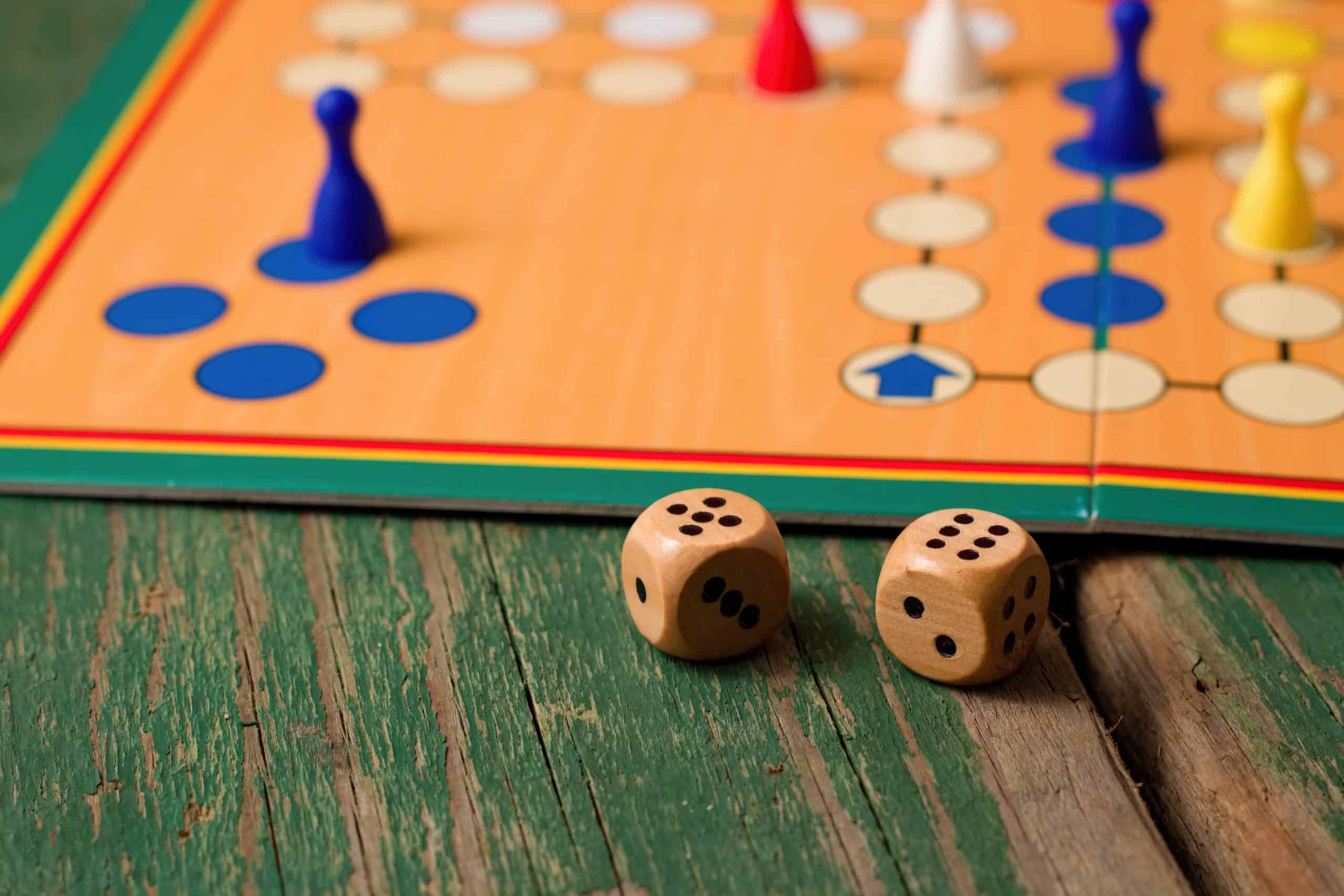Everyone remembers a special time in their lives when they would stay at home to gather with a group of friends or family for a fun game night. Classic board games like Clue, Monopoly, and Operation remain popular to this day and continue to be a billion-dollar industry. Even with all of the latest video games and other electronic devices available on the market, board games are still bringing people together with affordable, wholesome entertainment.
Most of these board games are perfect for retirees as well as children because fun has no age limit. Baby boomers will love playing these games with their friends, which can help keep their mind sharp and their social life vibrant. They can also foster relationships with their grandkids by spending quality time with them. So grab some snacks and gather around the living room to play and test your skills with some of these classic baby boomer games.
Monopoly
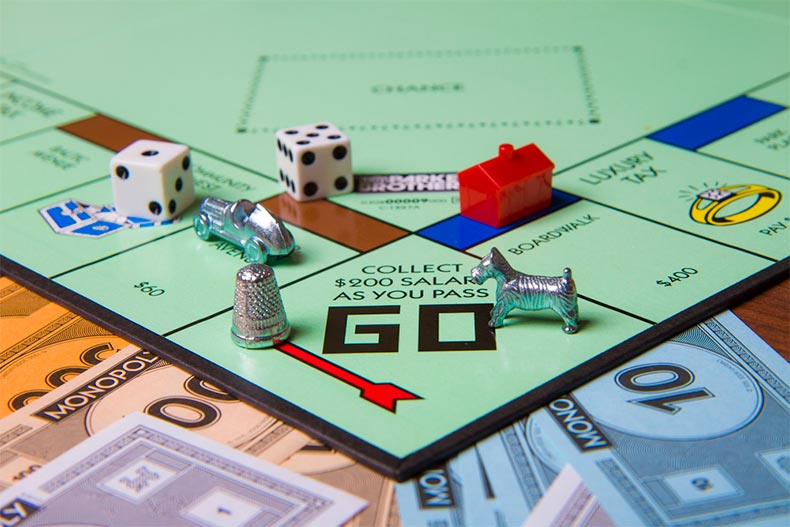
This popular board game originated in the U.S. and has been around since 1903. First published by Parker Brothers in 1935 and now produced by Hasbro, Monopoly is all about buying as much property as you can in order to make players pay you rent if they land on your “real estate,” or they go bankrupt if they run out of money. The winner ends up with the most money and properties across the board, creating a “monopolist.” You’ll definitely learn a thing or two about business and money in this competitive and strategic board game.
Backgammon
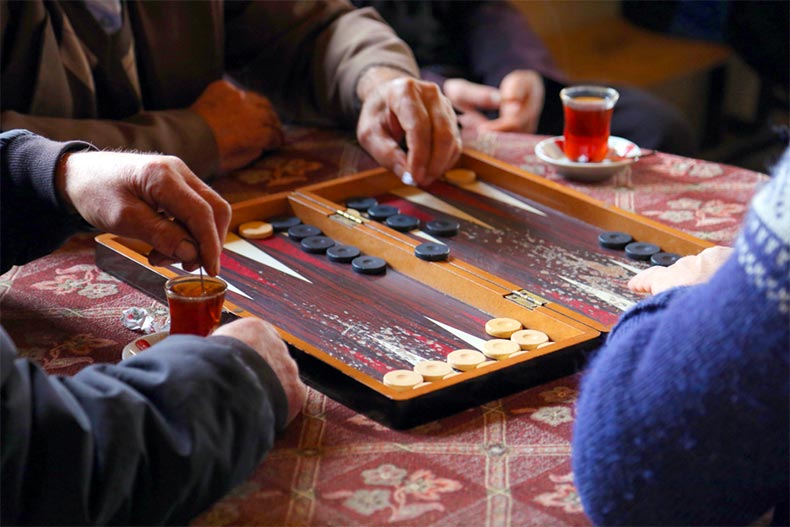
This two-player board game is one of the oldest in the world. Backgammon is played with players moving pieces across the board according to the roll of a dice. The player who removes all of their pieces from the board before their opponent wins the game. With a bit of luck, patience, and strategic moves, you can become a backgammon champ.
Scrabble
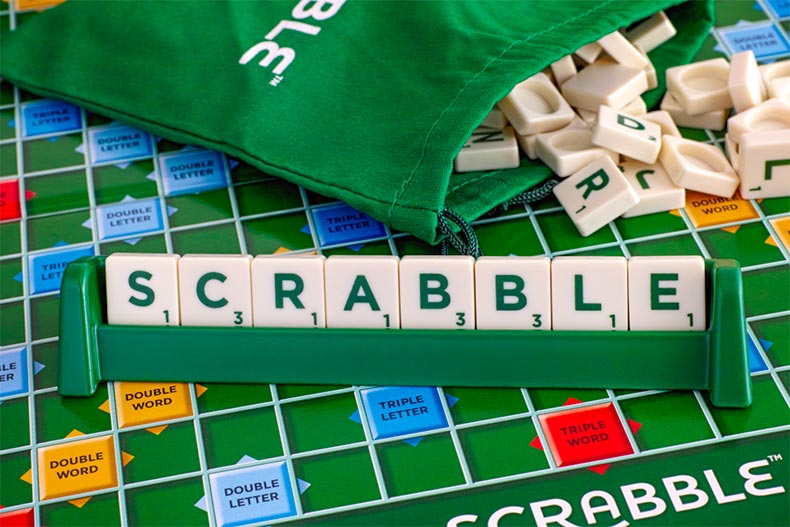
Who doesn’t love a good word game? Scrabble is a classic word game played by two to four players. The object of the game is to create as many words with your letter tiles on the board as you can and tally up points for each letter used. The best words using high point value letters like “Q”, “V”, or “X” on premium squares like “triple word score” or “double-letter score” will rack up the most points to win the game. If you think you have an extensive English vocabulary or are regarded as a wordsmith then challenge a friend in this fun board game. You may even learn a new word by the time it’s over.
Bingo
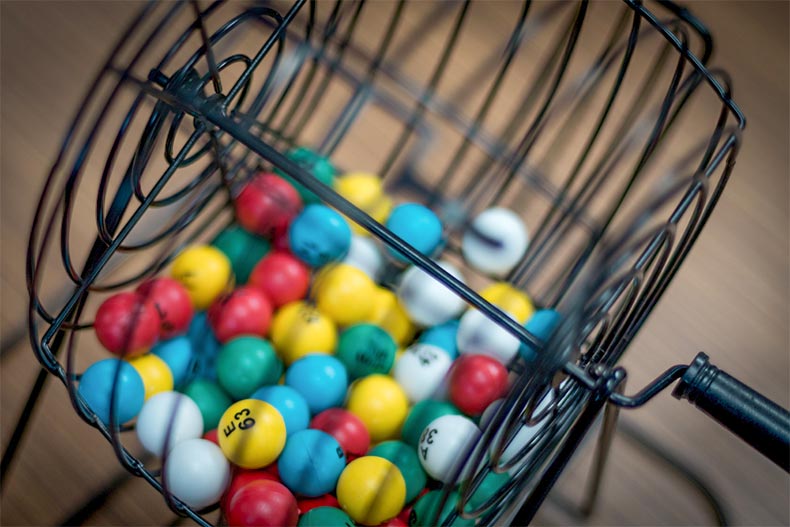
An old favorite that is still played today has evolved from the original paper version to electronic and handheld forms. Bingo is both interactive and exciting and is enjoyed from school children to retirees. All you have to do is fill out a card to match letters and numbers as they are being called out. Casinos, church functions, community centers, and other social events often host fun bingo games that attract those looking for a cash prize or just a good time with a lively crowd.
Clue
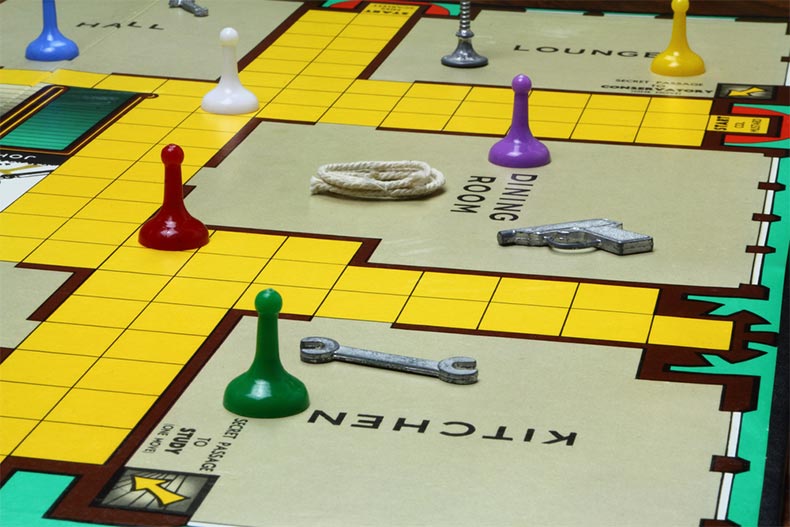
The case of “whodunit” comes to life in this murder-mystery board game that has been around since 1949. Three to six players gather clues to try to solve who killed the host as well as figure out which instrument and in what room the murder occurred. There are more than 300 possibilities, so paying attention to details and collecting clues is vital in order to win the game. So was it Professor Plum with a candlestick in the ballroom?
Operation
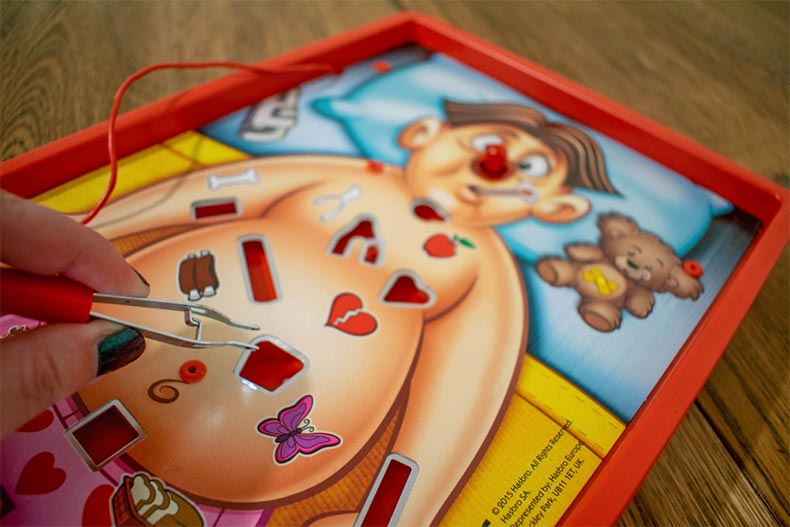
If you thought about becoming a surgeon at one point in your life then playing this battery-operated board game might have helped you make your final decision. Whether you have a steady hand or not, this exciting and nerve-racking game by Milton Bradley tests your dexterity. Players try to grab game pieces shaped like body parts from the small crevices of the patient, named “Cavity Sam”, without letting the tweezers touch the metal edge of the opening. If you get too close, a loud buzzing noise occurs and his nose lights up, which means you lose your turn. The person who collects the most money by removing parts of Cavity Sam wins. Boomers love testing their hand-eye coordination with this electronic, surgical-theme board game.
The Game of Life
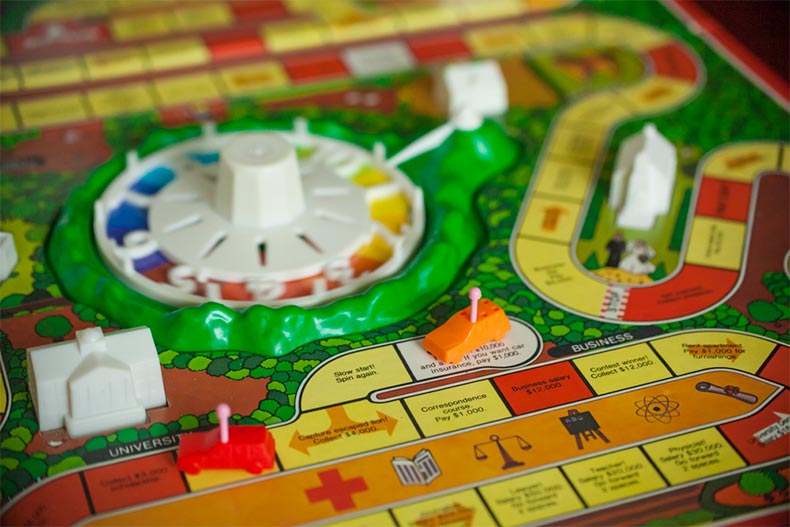
Board game connoisseur Milton Bradley launched the original The Game of Life in 1860 and it is still played today in many homes. The goal from the original game was to simulate a person’s stages of life from college to retirement with the goal of reaching a happy old age by earning points in honorable qualities.
An updated version of the game was released in 1960 and the goal was to win a lot of money and either move into Millionaire Acres or become a wealthy tycoon and risk being sent to the “Poor Farm.” Since the 1960s version, other versions of the board game have been published to keep up with current times, which include increased dollar values, replacing convertibles with minivans, and rewarding players for recycling trash or helping the homeless.
Trivial Pursuit
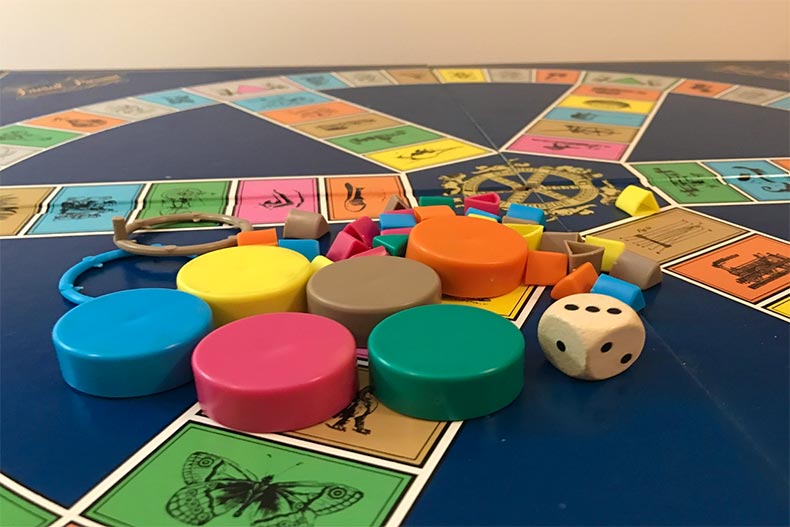
If you think you know all the answers in general knowledge and pop culture categories then test your trivia skills in Trivial Pursuit. This popular trivia board game has been around since the 1980s and has sold millions of copies around the world and in different languages. The game has spawned a variety of versions with different question sets from movies to T.V. shows. They even have a Baby Boomer Edition that includes questions from the 50s and early 60s in categories like nightly news, television, stage and screen, and publishing.
Chess
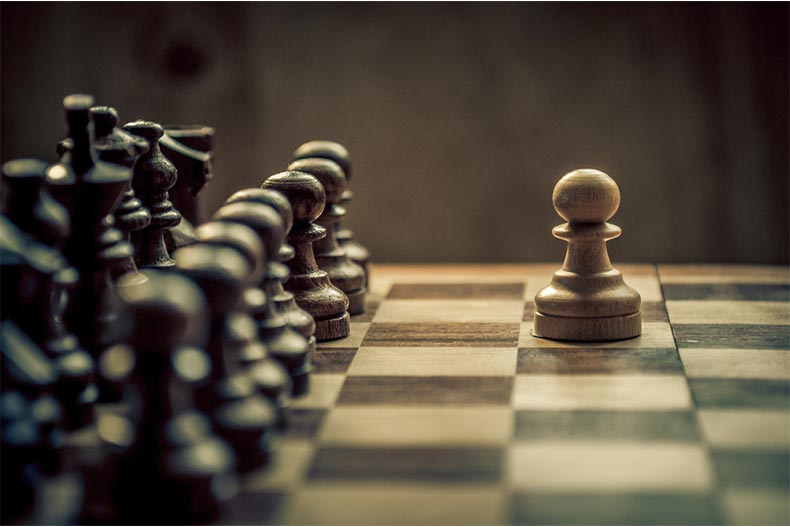
Chess is the board game that’s all about strategy and patience. It consists of two players, each with 16 pieces that they must move across the board in order to checkmate the opponent’s king. It’s also considered a worldwide sport where skilled players across all ages compete in tournaments for prizes and titles like the grandmaster, which is the highest title in chess. Boomers also love playing chess because it keeps their mind sharp and tests their cognitive skills.
Pictionary
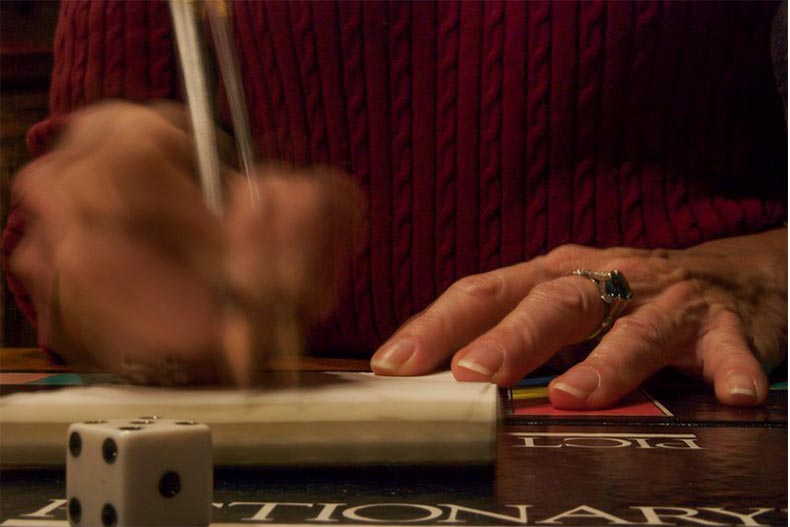
Pictionary will definitely turn any regular night into a fun game night. This word game is played with teams where players have to guess specific words or phrases from their teammates’ drawings. Each team moves a game piece on the board formed by a series of squares that has a letter or shape with a picture on it that the player must draw. The first team to guess correctly and reach the last space on the board wins. Retirees can enhance their artistic skills as well as test their image recognition, wordplay, and vocabulary abilities while having a blast in a group setting.

